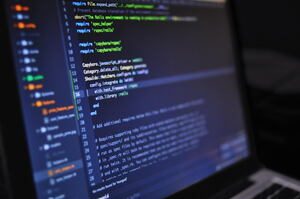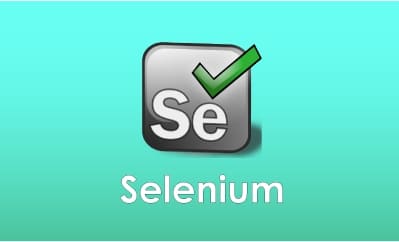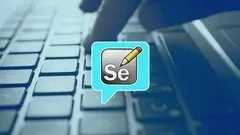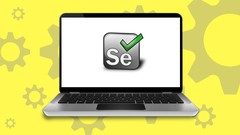This plan includes
- Limited free courses access
- Play & Pause Course Videos
- Video Recorded Lectures
- Learn on Mobile/PC/Tablet
- Quizzes and Real Projects
- Lifetime Course Certificate
- Email & Chat Support
What you'll learn?
- Answers to the Top 100 Software Testing Theory Interview questions
- Each answer includes real-life practical example, which helps to better understand the theory
- Each answer includes a video for those who prefer visual content
- Each answer includes an article for those who to read and analyze thoughtfully
Course Overview
Hi everyone. This course is about preparing for an interview for a Software Tester, also known as a QA. In most interviews there are two parts, testing your soft skills and technical knowledge, this course is about the second part, the technical part.
The course will be useful for testers:
1. Beginners in software testing, to deepen knowledge of software testing theory
2. Experienced software testers who want to recall the basic knowledge of software testing theory
The main task of the course is to deepen your knowledge of software theory. To help you answer questions clearly and confidently at the interview, we did three things, each answer to the question includes
1. Answer from official literature (standards, certifications, other documents)
2. Answer based on analyzed articles on the Internet (we call it "Human Language")
3. A real-life example to help you understand complex theoretical concepts
The course answers the following questions, which are divided into sections:
Testing theory
-
What is Testing?
-
What are software testing objectives?
-
Why is Testing necessary and important?
-
What is a bug?
-
What is the Difference between Error, Bug, and Failure?
-
What are the 7 Testing principles?
-
Principle 1. Testing shows the presence of defects, not their absence
-
Principle 2. Exhaustive testing is impossible
-
Principle 3. Early testing saves time and money
-
Principle 4. Defects cluster together
-
Principle 5. Beware of the pesticide paradox
-
Principle 6. Testing is context-dependent
-
Principle 7. Absence-of-errors is a fallacy
-
What is the difference between QA and QC and testing?
-
What is the importance of Manual testing, and do we still need it?
-
What is the difference between Verification and Validation?
SDLC (Software Development Lifecycle)
-
What is SDLC? What software development methodologies do you know?
-
What is the Waterfall Model?
-
What are Iterative and incremental development models?
-
What is Agile? What Is the Agile Manifesto?
-
What is Scrum?
-
What is Kanban?
-
What is the difference between Scrum and Kanban?
STLC (Software Testing Life Cycle)
-
What is STLC?
-
What stages of STLC do you know?
-
What are the Entry and Exit criteria?
-
What is a Test Environment? Why is a test environment needed?
-
What are the different test levels?
Test Documentation
-
What is a Bug(Defect) report? What to include in a Bug report?
-
What is a Defect/Bug Life Cycle?
-
What is the difference between Priority and Severity?
-
What is a Test Case? What to include in a Test Case?
-
What is a Test Plan? What does the test plan consist of?
Test Types
-
What types of testing do you know?
-
What is Functional Testing?
-
What is Non-functional testing?
-
What types of non-functional testing do you know?
-
What is GUI testing?
-
What is the difference between Localization and Internationalization testing?
-
What is Change-related testing? What are the Change-related testing types?
-
What is Confirmation testing (re-testing)?
-
What is Regression testing?
-
What is the difference between regression testing and re-testing?
-
What is the difference between Smoke and Sanity Testing?
-
What is the difference between Positive testing and Negative testing?
Test Design Techniques
-
What is the test design technique? What test design techniques do you know?
-
What do you understand by Black box, Gray box, and White box testing?
-
What is Review and what type of It do you know?
-
Please explain the Equivalence partitioning technique?
-
What is Boundary Values Analysis(BVA)?
-
What is Decision Table testing?
-
What is State Transition testing?
-
What is the Use Case testing? Use Case VS Test Case?
Client-Server Model
-
What is the Client-Server model, and how does it work?
-
What are the core components of an HTTP request?
-
What tools for Capturing and Analyzing Network Traffic do you know?
-
Wireshark Tutorial for Beginners
Web Testing
-
What is Web testing, and why is it important?
-
What is the difference between Cache and Cookies?
-
What is Cache?
-
What are Cookies?
-
What types of Websites and Web Applications do you know?
-
What is E-Commerce?
-
What Web testing tools do you know?
-
Chrome DevTools Tutorial for Beginners
-
BrowserStack Tutorial for Beginners
-
Web Testing Checklist
Mobile Testing
-
What is mobile testing, and why is it important?
-
What's the difference between Native vs. Web vs. Hybrid Apps?
-
What Mobile tools do you know?
-
Xcode Tutorial for Beginners
-
Android Studio Tutorial for Beginners
-
Mobile Testing Checklist
API testing
-
What is API testing, and why is it important?
-
What are the different types of APIs?
-
What is an API?
-
What is a REST API?
-
What is REST?
-
What is a REST API?
-
How does the REST API work?
-
What API testing tools do you know?
-
Postman Tutorial for Beginners
-
JMeter Tutorial for Beginners
-
API Testing Checklist
We hope you will enjoy the course and feel free to write reviews or send us the questions you were asked at the interview, we will prioritize and add them to the full version of the course.
Prepare a cup of coffee or another favorite drink and enjoy the course!
Hope to see you in the first lecture!
Pre-requisites
- A cup of coffee or other favorite drink should be prepared in advance
Target Audience
- Absolute beginners in Software Testing
- Experienced software testers who want to recall the basic knowledge of software testing theory
- Anyone who wants to take the first steps in the career of a Software tester (QA)
- Anyone who likes to watch videos about Software Theory or read articles on the same topic
- QA Engineers
Curriculum 55 Lectures 08:33:21
Section 1 : What is Testing
- Lecture 2 :
- Why is Testing necessary and important?
- Lecture 3 :
- What is the Difference between Error, Bug, and Failure?
- Lecture 4 :
- What is a bug?
- Lecture 5 :
- What are the 7 Testing principles?
- Lecture 6 :
- Principle 1. Testing shows the presence of defects, not their absence
- Lecture 7 :
- Principle 2. Exhaustive testing is impossible
- Lecture 8 :
- Principle 3. Early testing saves time and money
- Lecture 9 :
- Principle 4. Defects cluster together
- Lecture 10 :
- Principle 5. Beware of the pesticide paradox
- Lecture 11 :
- Principle 6. Testing is context dependent
- Lecture 12 :
- Principle 7. Absence-of-errors is a fallacy
- Lecture 13 :
- What is the difference between QA and QC and testing?
- Lecture 14 :
- What is the importance of Manual testing and do we still need it?
- Lecture 15 :
- What is the difference between Verification and Validation?
Section 2 : SDLC (Software Development Lifecycle)
- Lecture 1 :
- What is SDLC? What software development methodologies do you know?
- Lecture 2 :
- What is the Waterfall Model?
- Lecture 3 :
- What are Iterative and incremental development models?
- Lecture 4 :
- What is Agile? What Is the Agile Manifesto?
- Lecture 5 :
- What is Scrum?
- Lecture 6 :
- What is Kanban?
- Lecture 7 :
- What is the difference between Scrum and Kanban?
Section 3 : STLC (Software Testing Life Cycle)
- Lecture 1 :
- What is STLC? What stages of STLC do you know?
- Lecture 2 :
- What are the Entry and Exit criteria?
Section 4 : Test Types
- Lecture 1 :
- What types of testing do you know?
- Lecture 2 :
- What is the difference between Smoke and Sanity Testing?
Section 5 : Test Design Techniques
- Lecture 1 :
- What is test design technique? What test design techniques do you know?
- Lecture 2 :
- Please explain the Equivalence partitioning technique?
Section 6 : Client-Server Model
- Lecture 1 :
- What is the Client-Server model, and how does it work?
- Lecture 2 :
- What are the core components of an HTTP request?
- Lecture 3 :
- What are the core components of an HTTP response?
- Lecture 4 :
- What tools for Capturing and Analyzing Network Traffic do you know?
- Lecture 5 :
- Wireshark Tutorial for Beginners
Section 7 : Web Testing
- Lecture 1 :
- What is Cache?
- Lecture 2 :
- What are Cookies?
- Lecture 3 :
- What Web testing tools do you know?
- Lecture 4 :
- Chrome DevTools Tutorial for Beginners
- Lecture 5 :
- BrowserStack Tutorial for Beginners
Section 8 : Mobile Testing
- Lecture 1 :
- What is mobile testing, and why is it important?
- Lecture 2 :
- What's the difference between Native vs. Web vs. Hybrid Apps?
- Lecture 3 :
- What are the different types of Mobile Devices?
- Lecture 4 :
- What versions of Android and iOS are currently in use on the market
- Lecture 5 :
- Interrupt Testing in Mobile Application
- Lecture 6 :
- What the update/upgrade mobile testing is?
- Lecture 7 :
- Mobile App Installation and Uninstaltion testing tutorial
- Lecture 8 :
- What Mobile tools do you know?
- Lecture 9 :
- Xcode Tutorial for Beginners
- Lecture 10 :
- Android Studio Tutorial for Beginners
Section 9 : API testing
- Lecture 1 :
- What is an API?
- Lecture 2 :
- What is a REST API?
- Lecture 3 :
- How does the REST API work
- Lecture 4 :
- What API testing tools do you know?
- Lecture 5 :
- JMeter Tutorial for Beginners
- Lecture 6 :
- Postman Tutorial for Beginners
Section 10 : Additional questions
- Lecture 1 :
- Top 5 the most important soft skills Every QA should develop
Our learners work at
Frequently Asked Questions
How do i access the course after purchase?
It's simple. When you sign up, you'll immediately have unlimited viewing of thousands of expert courses, paths to guide your learning, tools to measure your skills and hands-on resources like exercise files. There’s no limit on what you can learn and you can cancel at any time.Are these video based online self-learning courses?
Yes. All of the courses comes with online video based lectures created by certified instructors. Instructors have crafted these courses with a blend of high quality interactive videos, lectures, quizzes & real world projects to give you an indepth knowledge about the topic.Can i play & pause the course as per my convenience?
Yes absolutely & thats one of the advantage of self-paced courses. You can anytime pause or resume the course & come back & forth from one lecture to another lecture, play the videos mulitple times & so on.How do i contact the instructor for any doubts or questions?
Most of these courses have general questions & answers already covered within the course lectures. However, if you need any further help from the instructor, you can use the inbuilt Chat with Instructor option to send a message to an instructor & they will reply you within 24 hours. You can ask as many questions as you want.Do i need a pc to access the course or can i do it on mobile & tablet as well?
Brilliant question? Isn't it? You can access the courses on any device like PC, Mobile, Tablet & even on a smart tv. For mobile & a tablet you can download the Learnfly android or an iOS app. If mobile app is not available in your country, you can access the course directly by visting our website, its fully mobile friendly.Do i get any certificate for the courses?
Yes. Once you complete any course on our platform along with provided assessments by the instructor, you will be eligble to get certificate of course completion.
For how long can i access my course on the platform?
You require an active subscription to access courses on our platform. If your subscription is active, you can access any course on our platform with no restrictions.Is there any free trial?
Currently, we do not offer any free trial.Can i cancel anytime?
Yes, you can cancel your subscription at any time. Your subscription will auto-renew until you cancel, but why would you want to?
Instructor

2696 Course Views
2 Courses



 Tech & IT
Tech & IT
 Business
Business
 Coding & Developer
Coding & Developer
 Finance & Accounting
Finance & Accounting
 Academics
Academics
 Office Applications
Office Applications
 Art & Design
Art & Design
 Marketing
Marketing
 Health & Wellness
Health & Wellness
 Sounds & Music
Sounds & Music
 Lifestyle
Lifestyle
 Photography
Photography




.jpg)












